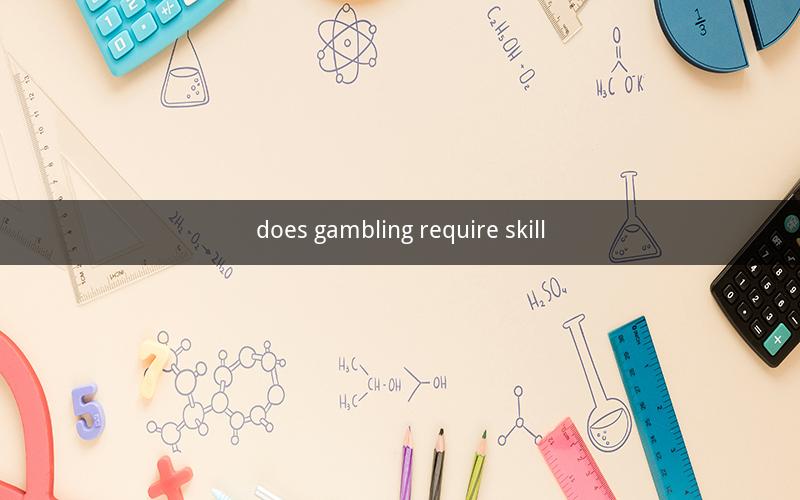
Table of Contents
1. Understanding the Basics of Gambling
2. Skill vs. Chance in Different Types of Gambling
3. The Role of Skill in Poker
4. Skill in Casino Games
5. Skill in Sports Betting
6. The Importance of Strategy
7. The Role of Psychology
8. The Impact of Luck on Skill
9. Conclusion
10. Frequently Asked Questions
1. Understanding the Basics of Gambling
Gambling has been a part of human culture for centuries. It involves betting something of value on an event with an uncertain outcome. While some people consider gambling a form of entertainment, others believe it requires skill and strategy. But does it truly require skill, or is it merely a game of chance?
2. Skill vs. Chance in Different Types of Gambling
The debate between skill and chance in gambling often revolves around the nature of the game itself. Some games, such as poker, are widely regarded as requiring skill, while others, like slot machines, are typically considered to rely on chance.
3. The Role of Skill in Poker
Poker is often cited as the quintessential example of a skill-based game. Players must make strategic decisions based on their hand, the actions of their opponents, and their understanding of probability and psychology. While luck plays a role in poker, the ability to read opponents and make calculated decisions is what separates the skilled players from the novices.
4. Skill in Casino Games
Casino games, such as blackjack, are often considered a blend of skill and chance. Skilled players can use mathematical strategies, such as card counting, to gain an advantage. However, the element of luck is still a significant factor, as the outcome is ultimately determined by the random shuffling of cards or the spinning of a roulette wheel.
5. Skill in Sports Betting
Sports betting involves predicting the outcome of a sporting event. While some sports betting strategies can be used to increase the likelihood of winning, luck still plays a significant role. The ability to research teams, players, and trends can help improve the chances of winning, but no amount of skill can guarantee success.
6. The Importance of Strategy
Strategy is an essential component of gambling. Whether it's selecting the right bets, managing bankroll, or using betting systems, a well-thought-out strategy can help increase the chances of winning. However, it's important to remember that no strategy can eliminate the element of chance.
7. The Role of Psychology
Psychology plays a crucial role in gambling. Players must be able to control their emotions, manage their expectations, and avoid making irrational decisions. Skilled gamblers are often more aware of their own psychological vulnerabilities and can use this knowledge to their advantage.
8. The Impact of Luck on Skill
While skill can improve the chances of winning, luck will always be a factor in gambling. Some games are more dependent on luck than others, and even the most skilled player may encounter a losing streak. It's important to remember that luck is a part of the game and not to be discouraged by a bad run of luck.
9. Conclusion
In conclusion, the question of whether gambling requires skill is a complex one. While some games, like poker, are widely regarded as skill-based, others, such as slot machines, are primarily games of chance. Regardless of the game, strategy, psychology, and luck all play a role in gambling success. Ultimately, the answer to whether gambling requires skill depends on the individual and the type of game being played.
10. Frequently Asked Questions
Question 1: Is poker a game of skill or chance?
Answer: Poker is often considered a game of skill, as it requires players to make strategic decisions based on their hand, the actions of their opponents, and their understanding of probability and psychology.
Question 2: Can a person improve their chances of winning at slots?
Answer: While slots are primarily games of chance, players can improve their chances of winning by selecting games with higher payout percentages and managing their bankroll effectively.
Question 3: Is sports betting a skill-based activity?
Answer: Sports betting involves a combination of skill and chance. While research and strategy can improve the chances of winning, luck will always play a significant role.
Question 4: Can a person lose money in a game of skill?
Answer: Yes, a person can lose money in a game of skill. Even the most skilled players can experience losing streaks due to the element of luck.
Question 5: Is it possible to make a living through gambling?
Answer: While it's possible for some individuals to make a living through gambling, it's a risky and unpredictable career path. Many professional gamblers experience periods of financial success and failure.
Question 6: Can psychology be used to gain an advantage in gambling?
Answer: Yes, psychology can be used to gain an advantage in gambling. By understanding one's own psychological vulnerabilities and those of opponents, players can make better decisions.
Question 7: Are there any gambling strategies that can guarantee a win?
Answer: No gambling strategy can guarantee a win, as luck will always be a factor. However, effective strategies can improve the chances of winning.
Question 8: Is it ethical to use card counting in blackjack?
Answer: The ethics of card counting in blackjack is a matter of debate. Some argue that it's a skill-based strategy, while others believe it's unfair to the casino.
Question 9: Can a person learn to become a skilled gambler?
Answer: Yes, a person can learn to become a skilled gambler by studying the games they're interested in, developing a strong strategy, and managing their bankroll effectively.
Question 10: Is gambling addiction a real issue?
Answer: Yes, gambling addiction is a real issue that affects many people. It's important for individuals struggling with gambling addiction to seek help from professionals.